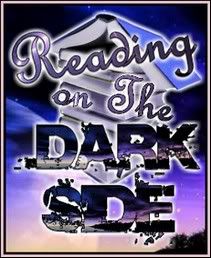 April is a wonderful month in a season filled with rebirth and celebrations of gods born during this season. April 19th is Rama Navami, a Hindu festival, celebrating the birth of the god Rama to King Dasharatha and Queen Kausalya in Ayodhya. Rama, the 7th avatar of Vishnu, is the oldest known god having human form. The holy day falls in the Shukla Paksha on the Navami, the ninth day of the month of Chaitra in the Hindu calendar. Thus it is also known as Chaitra Masa Suklapaksha Navami, and marks the end of the nine-day Chaitra-Navaratri (Vasanta Navaratri) celebrations. Rama navami is one of the most important Hindu festivals.
April is a wonderful month in a season filled with rebirth and celebrations of gods born during this season. April 19th is Rama Navami, a Hindu festival, celebrating the birth of the god Rama to King Dasharatha and Queen Kausalya in Ayodhya. Rama, the 7th avatar of Vishnu, is the oldest known god having human form. The holy day falls in the Shukla Paksha on the Navami, the ninth day of the month of Chaitra in the Hindu calendar. Thus it is also known as Chaitra Masa Suklapaksha Navami, and marks the end of the nine-day Chaitra-Navaratri (Vasanta Navaratri) celebrations. Rama navami is one of the most important Hindu festivals.Followers of Hinduism in South India normally perform Kalyanotsavam (marriage celebration) with small deities of Rama and Sita in their homes, and at the end of the day the deity is taken to a procession on the streets. This day also marks the end of the nine-day utsava called Chaitra Navaratri (Maharashtra) or Vasanthothsava (Andhra Pradesh, Karnataka & Tamil Nadu) (festival of Spring), which starts with Gudi Padwa (Maharashtra). According to recent astrological studies, some consider his date of birth to be January 10, 5114 B.C.E.
Some highlights of this day include
- Kalyanam, a ceremonial wedding performed by temple priests
- Panakam, a sweet drink prepared on this day with jaggery and pepper.
- Some people put a small idol of Rama in a cradle, symbolizing the significance of the day and offer prayers to it. Community meals are also organised.
- Procession of murtis in the evening, accompanied by playing with water and colors.
In Northern India, an event that draws popular participation is the Rama Navami procession, also called Ratha Yatra. The main attraction in this procession is a gaily decorated chariot in which four persons enact the divine pastimes of Rama, His brother Lakshmana, His queen Sita and His pure devotee, Hanuman. The chariot is accompanied by several other persons dressed up in ancient costumes as Rama's soldiers. The procession is a gusty affair with the participants praising echoing the blissful days of Rama's rule as the Supreme Emperor on Bhuloka (Earth).





No comments:
Post a Comment